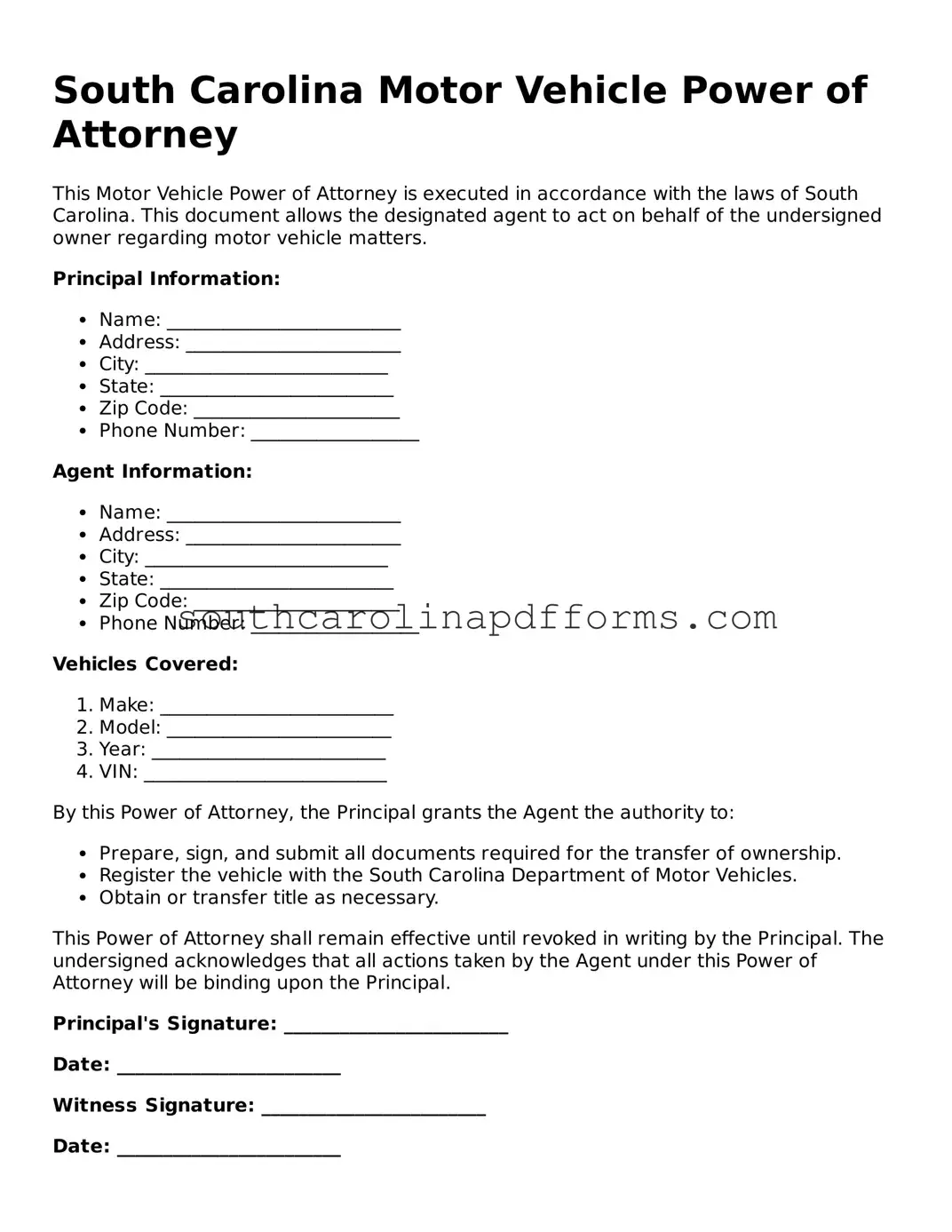Attorney-Approved South Carolina Motor Vehicle Power of Attorney Document
The South Carolina Motor Vehicle Power of Attorney form allows an individual to appoint someone else to handle specific vehicle-related transactions on their behalf. This legal document is essential for ensuring that your vehicle matters are managed efficiently, especially when you cannot be present. Understanding this form can help you navigate the responsibilities and rights associated with vehicle ownership in South Carolina.
Access Motor Vehicle Power of Attorney Here
